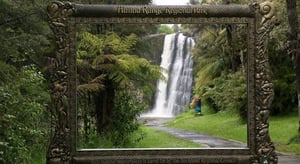With the pandemic presenting numerous challenges for Pacific communities, many families are turning to Pacific NGOs for assistance.
Mapu Maia offers counseling and holistic services that are culturally tailored to individuals, families and communities. National Director of Mapu Maia Pesio Ah-Honi says her team are facing a few technological challenges in their line of work.
“A lot of our families can’t do Zoom or can’t do the online stuff, and that’s because they don’t have the data or Wifi at home or the technology,” she says.
“It’s hard when we can’t do it face to face. Usually we’re in their homes, we get invited in and we spend a lot of time with the engagement, getting to know each other.”
Ah-Honi says that while the team have adapted to working conditions of the first lockdown, she has seen “a huge increase” in anxiety with the second.
“People [are] ringing up just absolutely anxious and worried about losing their jobs, worried about food security, worried about their family members,” says Ah-Honi.
“People calling [about] domestic violence and family violence. We definitely saw people trying to calm themselves by drinking alcohol or not being able to cope with the stress so they argue more in the house.”
The organisation has continued to provide counselling, support and connecting people with food banks, housing and employment services.
“When people are anxious and worried, they don’t really see solutions that could help them, so that was all we were trying to do; give them tools, give them advice,” says Ah-Honi.
“We really [encourage] people to do alternative things they wouldn’t normally do. Try and teach your kids about things like where you come from, what your life in Samoa or Tonga was like. Talanoa with your family, cook together, do the garden, just stuff that you can do together as a family.”
Mapu Maia recently collaborated with Poet, Actor and Activist Grace Iwashita-Taylor to create a video on the importance of wellness, and addressing the discrimination many South Aucklanders faced in the wake of the second outbreak.
“The whole discrimination thing was… really sad to see, but in our mind we needed to help our communities build resilience and remind them that we are strong, our strength is from being together, and that we’re more that just what the media say.”
Pacific health and social services provider Vaka Tautua is also working remotely. Vaka Tautua CEO Amanda-Lanuola Dunlop says staying connected with their service users is a priority.
“We have continued to ensure our services are available to our older peoples, peoples with disabilities, those experiencing mental illness and family violence,” says Dunlop.
“But just doing things differently in a way that protects everyone’s health and safety.”
Services and support are provided over the phone via mobile apps or online, and physical community engagement is reserved, which Dunlop says isn’t always ideal.
“Face-to-face sessions are being used when/as required for high needs service users, with our teams following COVID-19 safety guidelines.”
“For many of our service users, we are their own social connections or support, the only person they see – and so lockdown and this way of working has not been ideal for them. Staying connected with them and all our service users is a priority. Also supporting them via our outreach programme like food parcels and PPE packs.”
Dunlop says the the number of Pacific peoples reaching out during the second lockdown was no different from the first. Vaka Tautua established a new, free Pacific helpline for those feeling overwhelmed by the mental anxiety.
“The calls we have received have shown there are many things stressing our people at this time, ranging from access to information about COVID-19 and local food banks, housing, income, health through to people being worried about their elder parents or needing someone to talk to in their own language,” says Dunlop.
“These stressors or issues have always been there, but they may have been hidden or our people learned to cope with them. But COVID-19 has brought them to the surface and made the situation worse. We have a huge challenge in front of us, to help our people get well, be well and stay well.”
WHERE TO GET HELP:
Mapu Maia:
0800 21 21 22
Vaka Tautua:
0800 OLA LELEI











